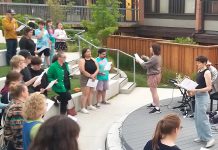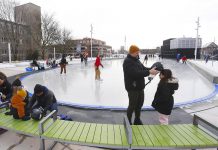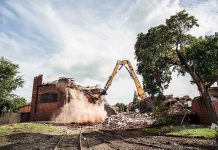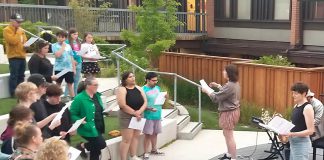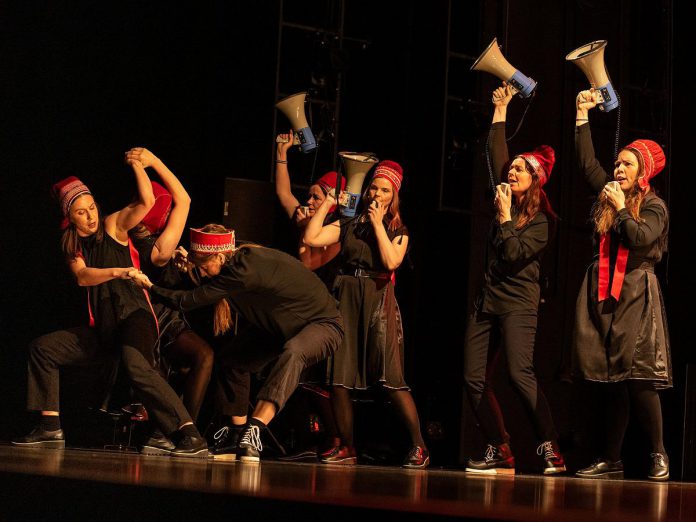
What does the opening musical number of the 2013 award-winning Disney film Frozen have in common with an internationally acclaimed dance concert that Public Energy Performing Arts is bringing to Peterborough in March as part of its 30th anniversary season?
The answer is the cultural identity of the Sámi, the Indigenous inhabitants of northern Fennoscandia — the peninsula that encompasses the mainlands of Finland, Norway, Sweden, and part of Russia.
Vástádus eana (The Answer Is Land), which will be performed at Market Hall Performing Arts Centre at 2 p.m. on Sunday, March 3rd, is the creation of Elle Sofe Sara, a Sámi artist who grew up in a family of reindeer herders north of the Arctic circle in Guovdageaidnu, Norway.
Some of the music for the performance was written by Sámi composer Frode Fjellheim, whose 2002 song “Eatnemen Vuelie” (Song of the Earth) — inspired by “yoik,” the traditional music the Sámi sang while travelling across the land — was later adapted to become the opening musical number of the Disney film Frozen.
The Sámi (previously known as Laplanders, a term offensive to the Sámi), have lived in the northern part of Fennoscandia — which the Sámi call Sápmi — for thousands of years, depending on the bounty of nature by hunting reindeer and fishing. For most of that time, the Sámi coexisted peacefully with the Scandinavians (known as Norse people in medieval times) who lived in the south, as the two cultures had relatively little contact.
While Indigenous to the northern part of Fennoscandia, the Sámi’s settlement of Sápmi did not predate the settlement of the south by the Scandinavians. However, like Indigenous peoples in North America, the Sámi experienced the same attempt to erase their culture and heritage.
Beginning in the 18th century and continuing through the 19th century, the governments of Norway and Sweden aggressively asserted their sovereignty in the north and targeted the Sámi with “Scandinavization” policies aimed at forced assimilation. Having previously ignored the Sámi, the Norwegian and Swedish authorities began to regard them as a “primitive” people who needed to be “civilized” and they effectively banned the Sámi language and culture.
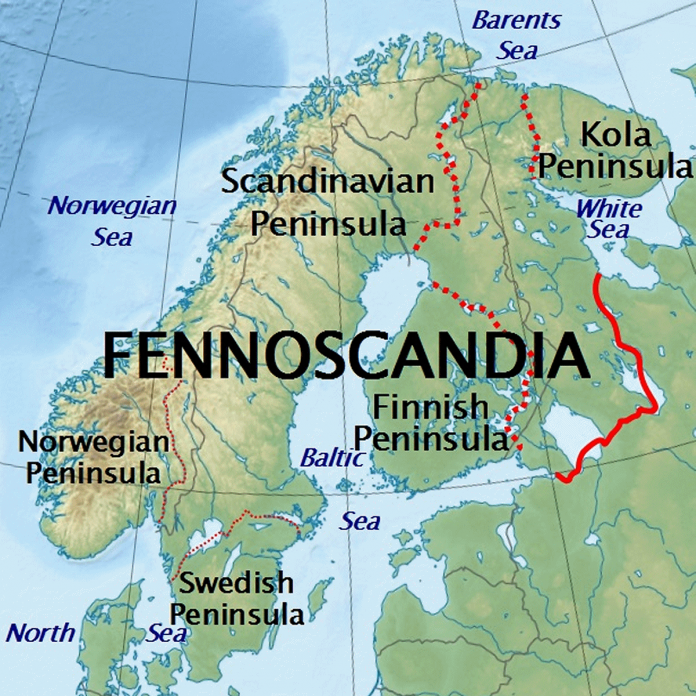
In Vástádus eana (The Answer Is Land), “the past and present coincide in a powerful and inspiring call to heal the land,” according to a media release from Public Energy.
“Love and connection to nature, our surroundings and people are important to me, as I live in a Sámi village and society,” says Elle Sofe Sara, who is also a director and filmmaker as well as a choreographer. “I had an urge to create a dance and yoik experience where connection to the place (the land, nature) and togetherness are the main themes.”
Using polyphonic chants and movements, the seven performers of Vástádus eana (The Answer Is Land) are clad in traditional headgear, meeting the audience outside the theatre and then guiding them inside for the choreographed concert, which runs for around 70 minutes.
VIDEO: Vástádus eana (The Answer Is Land) trailer
Elle Sofe Sara calls the choreography in the performance “formation dance,” evoking the public demonstrations and police actions that have surrounded the Sámi people’s fight against the efforts of government and industry to exploit the natural resources of the land on which they live. The music in the performance is a blend of traditional yoiks and new yoiks, including some written especially for the show by Sámi composer Frode Fjellheim.
“Often people ask me how they should define or look at my work,” Elle Sofe Sara says. “Is it dance, is it a performance concert, theatre, or what? In my opinion there is no need to define. Vástádus eana The Answer is Land is its own. Let yourself be carried away, feel and experience it.”
Vástádus eana (The Answer Is Land) received the 2020-2022 Critics Award in Norway, where Sara is considered one of her generation’s most influential dance artists. The show has been presented at some of Europe’s most prestigious theatres and festivals and is currently on its first cross-Canada tour.
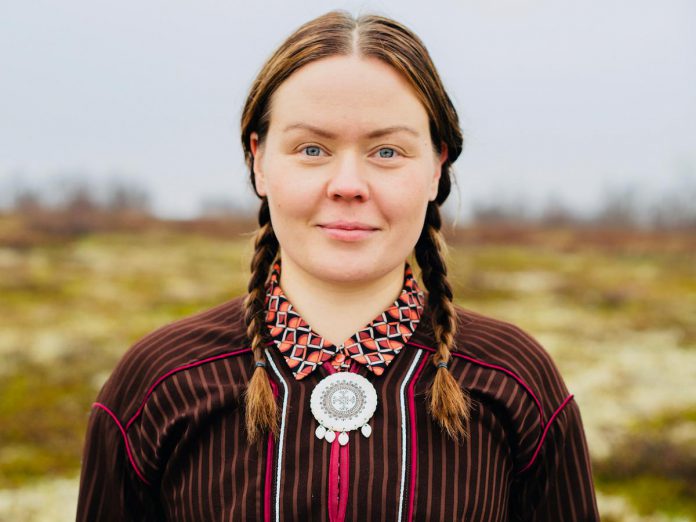
Elle Sofe Sara’s future projects include directing Árru, the first-ever feature-length musical in a Sámi language. The 2025 film is rooted in the yoik vocal tradition and addresses the socio-ecological impact of a copper mine near Guovdageaidnu.
General admission tickets for Vástádus eana (The Answer Is Land) are sold on a sliding pay-what-you-can scale from $10 to $50. Tickets are available in person at the Market Hall box office at 140 Charlotte Street from 12 to 5 p.m. Monday to Friday or online anytime at tickets.markethall.org.
For more information about Public Energy’s 2023-24 season, visit publicenergy.ca/performance-season/2023-2024/.
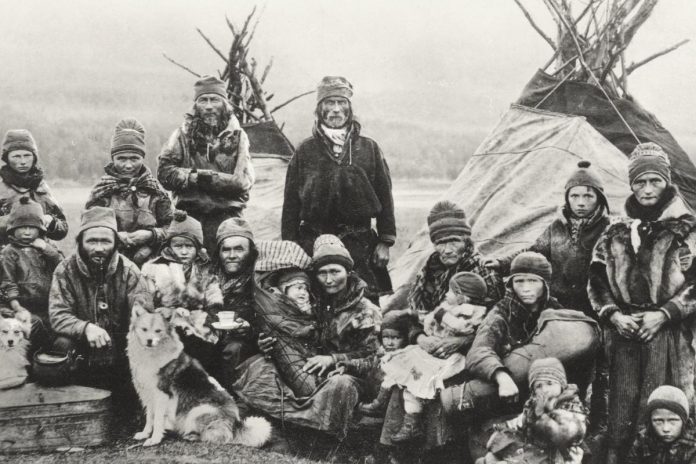
kawarthaNOW is proud to be a long-time media sponsor of Public Energy Performing Arts.


